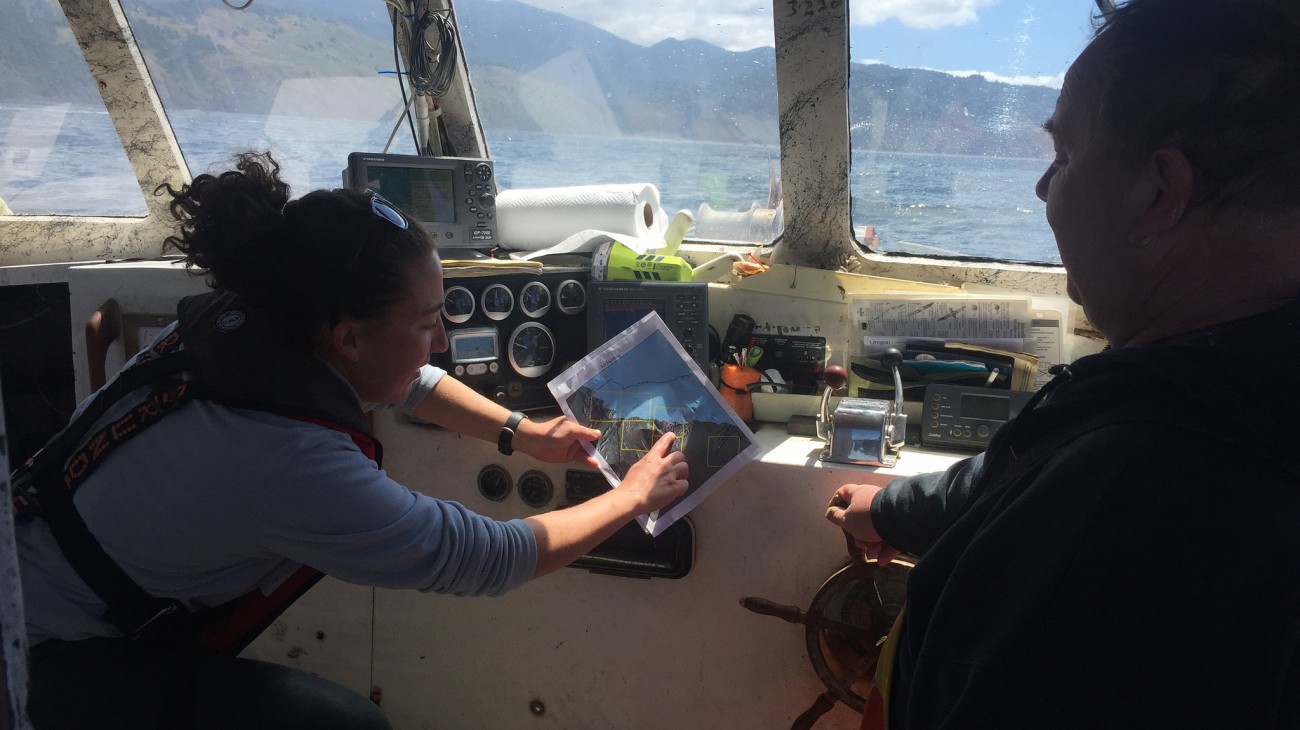With the 2017 field season approaching, the ODFW Marine Reserves Program has two Request for Proposals (RFPs) available for vessel contracts to help with this year’s hook and line surveys at Cape Falcon Marine Reserve and Redfish Rocks Marine Reserve. If you or someone you know is interested, please see the RFPs for more information.
Why do we work with fishermen?
ODFW has a long history of working closely with fishermen – from bycatch research to conducting underwater video surveys – this type of collaborative work isn’t anything new. After all, research and science don’t exist in a vacuum and who better knows the ocean than the fishers that have plied its waters for generations.
Collaborations with fishermen have been integral to our marine reserves research. Fishermen contribute valuable local knowledge of the nearshore ocean, as well as expertise in operating vessels, and knowing what types of gear are best to sample different species. Some pretty exciting science has been spurred by work with commercial and charter fishing captains in Oregon’s marine reserves, including the development of a longline pilot study originally proposed by a commercial fisherman, Jeff Miles out of Port Orford. As a result of that pilot study, the ODFW Marine Reserves Program is now conducting longline surveys in combination with hook and line surveys at the Redfish Rocks Marine Reserve to broaden the species and size ranges of fish we are sampling.
We conduct hook and line surveys aboard Oregon charter and commercial fishing vessels. This type of survey work benefits from local fishing expertise, whether it’s the captains, deckhands or volunteer anglers. Captains help us determine sampling locations. Deckhands help with handling fish, deploying gear and recompressing fish who may be showing signs of barotrauma. Plus, this survey relies on 5-10 volunteer anglers who are experienced fishing Oregon’s rocky reefs.
Research work is what guides fishing.
The benefits of collaborations between fishermen and scientists are many including better study designs and data, improved relevance of research to management, and in some instances is more cost effective (Johnson and Denson 2007). Or as Jeff Miles put it: “Research work is what guides fishing.”
